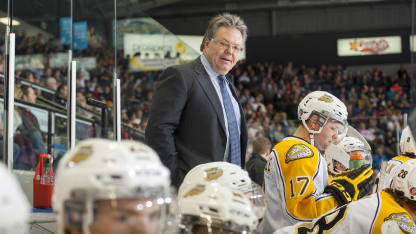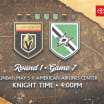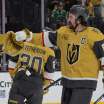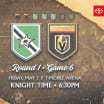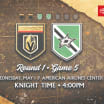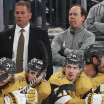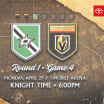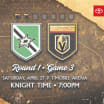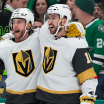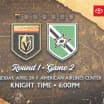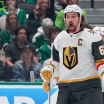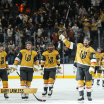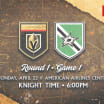Kelly McCrimmon is a hockey man. In fact, it's hard to imagine meeting anyone who is more 'hockey' than the man universally known as Crim.
First of all, he's from Saskatchewan. Maybe there is a place which is just as much about hockey as the province planted right in the middle of the Canadian prairie. But that's a slim maybe.
Owning, operating and coaching the Brandon Wheat Kings of the Western Hockey League wasn't enough hockey for McCrimmon. So he added assistant GM of the NHL's Vegas Golden Knights to his portfolio.
McCrimmon played for the Wheat Kings as a junior before returning and beginning a progression which saw him eventually purchase the club.
Accomplished as a coach and GM, McCrimmon also has a keen business sense. He did is MBA while riding the bus over a number of WHL seasons and the Wheat Kings are an efficient and successful operation. Put simply, McCrimmon came to embody the Wheat Kings and the organization is respected as one of the best in junior hockey.
Golden Knights GM George McPhee spoke during the expansion draft process of a partnership between himself and McCrimmon.
"Kelly was critical. We developed a bond and a trust. One guy couldn't do it all himself," said McPhee. "We did it together. It was wholly collaborative."
McCrimmon sat down with VegasGoldenKnights.com in Los Angeles recently and talked about the summer that was the season to come.

